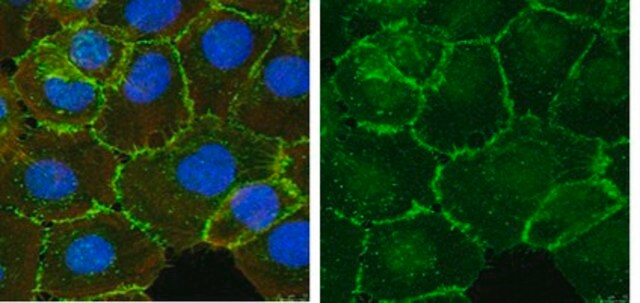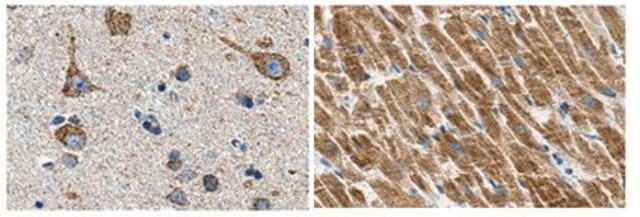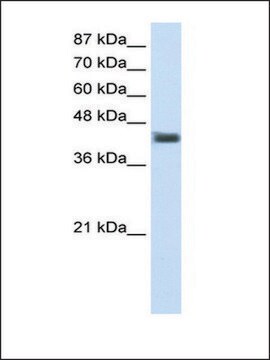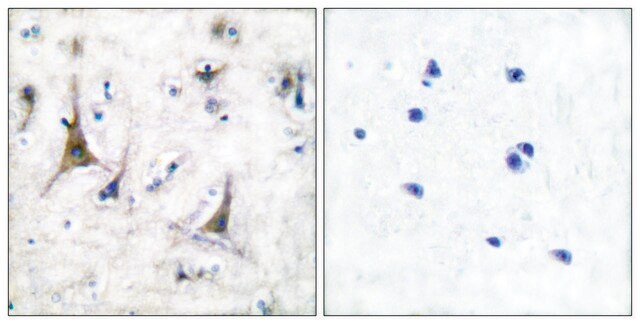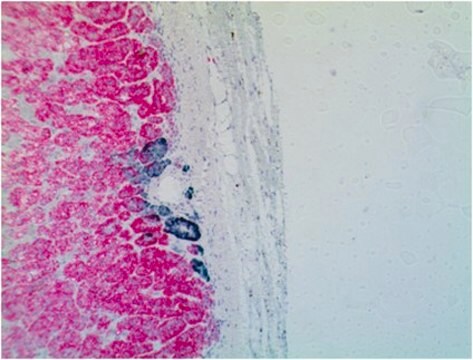228M-1
BG8, LewisY (F3) Mouse Monoclonal Antibody
About This Item
Prodotti consigliati
Origine biologica
mouse
Livello qualitativo
100
500
Coniugato
unconjugated
Forma dell’anticorpo
culture supernatant
Tipo di anticorpo
primary antibodies
Clone
F3, monoclonal
Descrizione
For In Vitro Diagnostic Use in Select Regions (See Chart)
Forma fisica
buffered aqueous solution
Reattività contro le specie
human
Confezionamento
vial of 0.1 mL concentrate (228M-14)
vial of 0.5 mL concentrate (228M-15)
bottle of 1.0 mL predilute (228M-17)
vial of 1.0 mL concentrate (228M-16)
bottle of 7.0 mL predilute (228M-18)
Produttore/marchio commerciale
Cell Marque™
tecniche
immunohistochemistry (formalin-fixed, paraffin-embedded sections): 1:10-1:50
Isotipo
IgM
Controllo
adenocarcinoma of lung
Condizioni di spedizione
wet ice
Temperatura di conservazione
2-8°C
Visualizzazione
cytoplasmic
Informazioni sul gene
human ... F3(2152)
Categorie correlate
Descrizione generale
Qualità
 IVD |  IVD |  IVD |  RUO |
Linkage
Stato fisico
Nota sulla preparazione
Altre note
Note legali
Non trovi il prodotto giusto?
Prova il nostro Motore di ricerca dei prodotti.
Certificati d'analisi (COA)
Cerca il Certificati d'analisi (COA) digitando il numero di lotto/batch corrispondente. I numeri di lotto o di batch sono stampati sull'etichetta dei prodotti dopo la parola ‘Lotto’ o ‘Batch’.
Possiedi già questo prodotto?
I documenti relativi ai prodotti acquistati recentemente sono disponibili nell’Archivio dei documenti.
Il team dei nostri ricercatori vanta grande esperienza in tutte le aree della ricerca quali Life Science, scienza dei materiali, sintesi chimica, cromatografia, discipline analitiche, ecc..
Contatta l'Assistenza Tecnica.